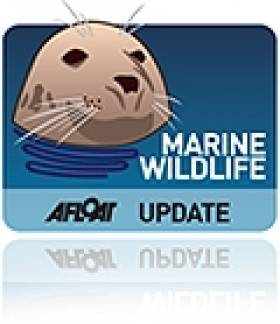Displaying items by tag: Cetaceans on the Frontier
'Frontier' Surveyors Meet Sperm Whales and Killer Whale
#MarineWildlife - Sperm whales and a killer whale were among the finds on the last big effort of this year's Cetaceans on the Frontier survey led jointly by the Galway-Mayo Institute of Technology (GMIT) and the Irish Whale and Dolphin Group (IWDG).
As previously reported on Afloat.ie, marine scientists from GMIT's Marine and Freshwater Research Centre are on board the RV Celtic Explorer to carry out the fourth dedicated survey of cetaceans on the continental shelf edge.
The ship was surveying a zig-zag pattern in the Atlantic yesterday 2 February, some 55 nautical miles west-by-northwest of Achill Island (visible on this map HERE) when the team encountered at least two sperm whales, though an elusive third may also have been present - as indicated by the hydrophone being towed 200m behind the vessel.
"The blows continued and as we got closer, more and more body of the surfacing whale could be seen until we were treated to some reasonable views of the steep nose, long flat back and stumpy dorsal fin on initial surfacing followed by a thick tail stock with ‘knuckles’ seen when flaking," writes Niall Keogh on the Cetaceans on the Frontier blog.
Soon after that, the researchers were treated to their first sight of a killer whale in Irish waters - followed by a number of pilot whales surfacing close to the ship.






























































